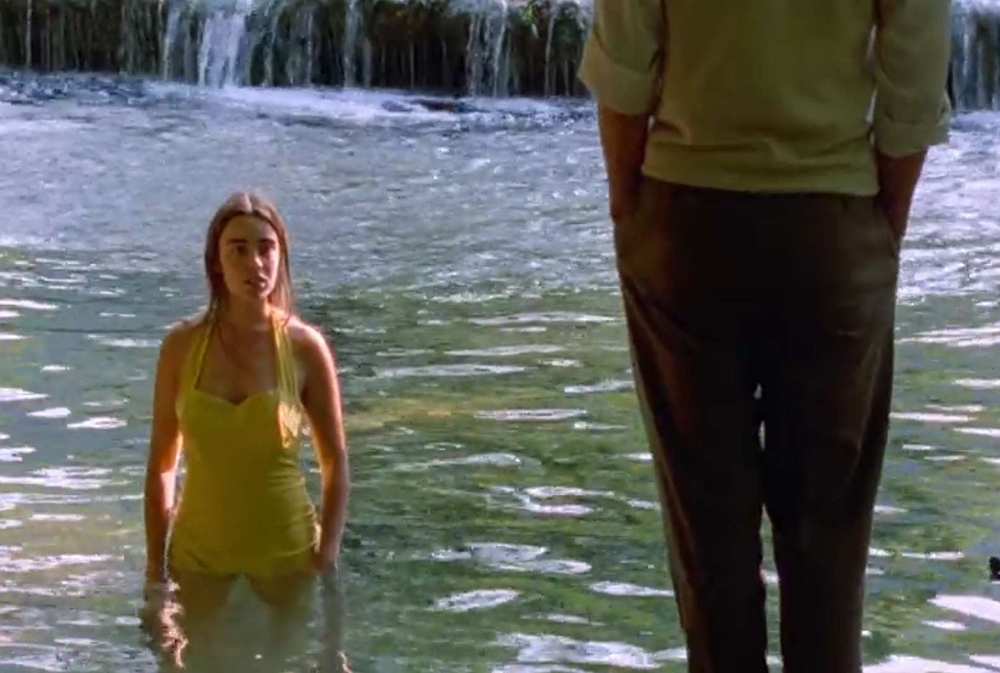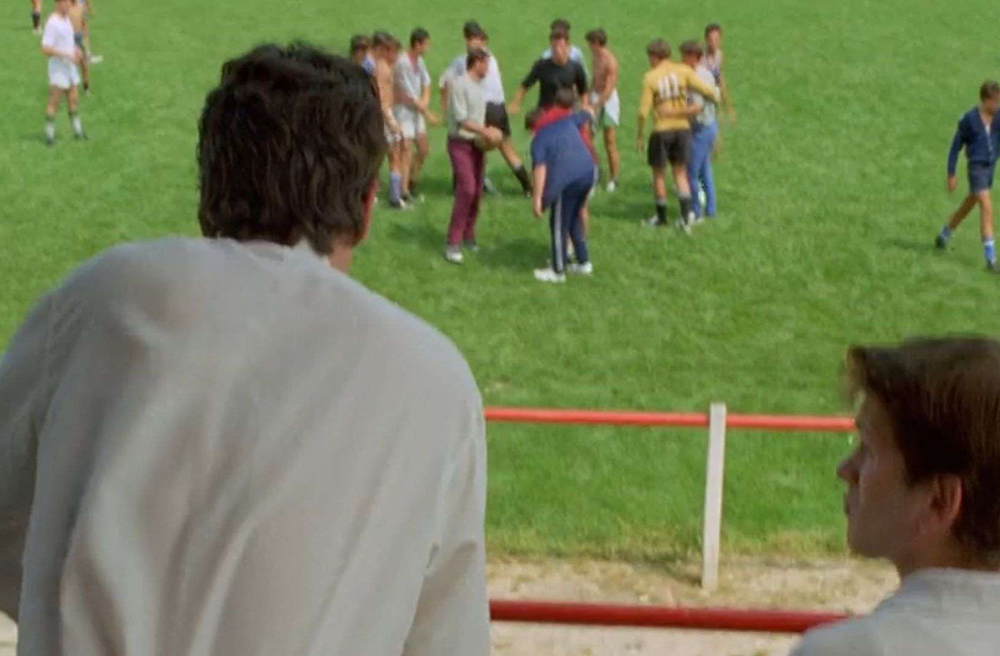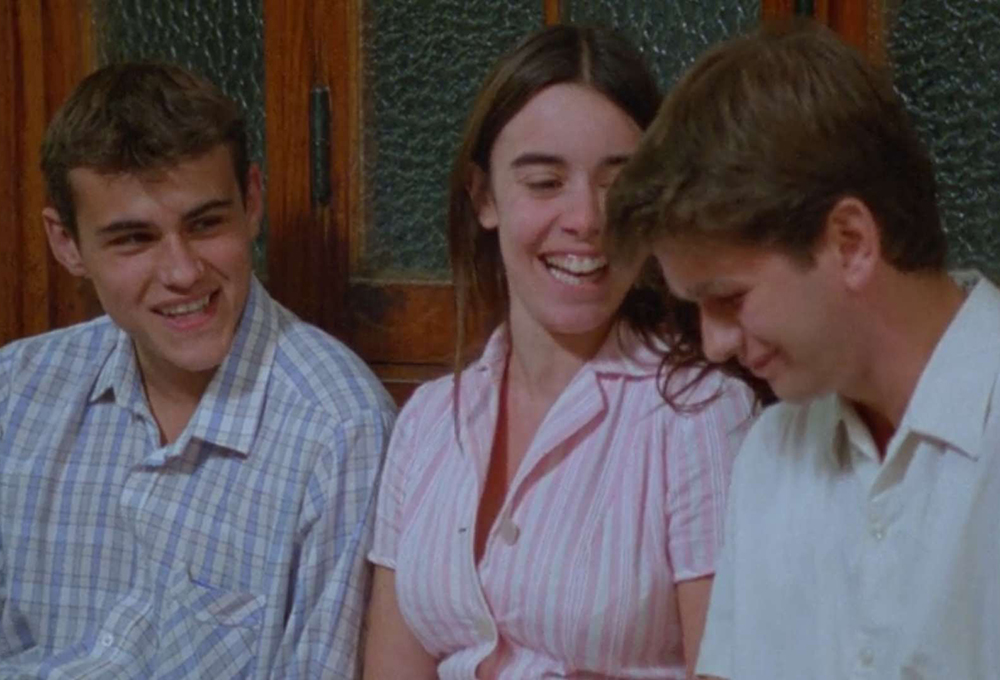Viewers are first introduced to François and Maïté, two youngsters growing up in southeast France amidst the raging Algerian war. This has led to a divisive sociopolitical atmosphere at François’s boarding school. Maïté is known for her outspoken nature, and is at a loggerheads with Henri, a troubled youngster from Algeria. He’s treated as an outcast by the primarily French students at the boarding school due to differing political viewpoints. On the other hand, shy François is left with conflicted emotions post a chance sexual awakening courtesy of his classmate, a brooding farmhand named Serge, and is questioning his sexuality. The rest of the movie follows the conflicted foursome in a coming-of-age journey woven around their respective fears and innermost desires.
Thematically Rich; Exploration of LGBTQ+ Issues
Considering I’m still warming up to movies and TV shows catering to young adult audiences—and as this was my first exposure to French cinema—I was unsure what to expect going into “Wild Reeds.” It definitely had me drawing parallels with more contemporary outings such as the recent HBO Max series “Our Flag Means Death” and also to similarly dark academic classics that I’ve had the pleasure of watching, such as the Rupert Everett/Colin Firth starrer “Another Country” (1984). Both of these are thematically-rich when it comes to shedding light on LGBTQIA+ topics through fictional or semi fictional narratives.
For instance, a scene featuring François inviting the cloistered Serge out on a trip to town with him—in order to open his mind up to new experiences such as clubbing—felt reminiscent to a similar scene from “Our Flag.” In that scene, a starry-eyed but timid co-Captain Blackbeard/Ed Teach accompanies his aristocratic co-Captain Stede Bonnet to a posh party for his first taste of upper crust life. Maïté and the closeted François’s platonic friendship in “Wild Reeds” also closely and consistently resembles the similar wholesome bond shared between a newly out and proud Captain Stede Bonnet and his accepting ex-wife, the Widow Bonnet/Mary in the aforementioned show.

It is incredibly heartening that Téchiné and co-writers Olivier Massart and Gilles Taurand placed importance on such positive dynamics. This is particularly true in the portrayal of Maïté as a young ally rather than as a one-dimensional caricature of the shallow, jealous, and vindictive female. Maïté’s personality too extends beyond just her strong political views. Téchiné fleshes her out with her own set of desires, working towards bringing the same to fruition, much like François.
Flowing, Dynamic Character Portrayals
Another similarity this movie shares with its OTT counterpart is that it sets out to examine—to borrow a phrase from filmmaker, actor, and gay icon Taika Waititi—’what it means to be a man.’ This is via the experience of François’s love interest, the overly masculine Serge, who is grappling with his grief following the sudden death of his older brother in the war. And later, Serge will almost cave into societal expectations, such as an idealized, ‘realistic’ heterosexual marriage. This is in order to satisfy the sexual desires of his newly widowed sister-in-law (something François, too is strictly against, as a result of his own growing feelings for Serge). This approach to addressing each character’s individual needs also results in a more layered and flowing character dynamic.
What sets this movie apart from even most other contemporary LGBTQIA+ centred narratives, however, is the commendable and rare attempt to address asexuality. The character of Maïté can be read as asexual due to her initial ‘disinterest’ in pursuing romantic relationships altogether. She prefers the satisfaction of a platonic friendship rather than imparting any value to meaningless sexual flings or onto marriage.
A Solid Representation of Post French New Wave Cinema

The main cast comprises of Élodie Bouchez (Maïté), Gaël Morel (François), Stéphane Rideau (Serge), and Frédéric Gorny (Henri). New actors at the time, their novice nature barely shows and they all deliver fine performances. Élodie Bouchez secured a César Award in the ‘Best Promising Actress’ category for her stellar performance, with her co-stars each receiving nominations in acting categories as well. Despite his limited screen-time, Jacques Nolot as the empathetic Monsieur Morelli—intent on cultivating a love for literature and for learning in Henri through their nightly classes—also leaves an impression. The soundtrack stirs up some nostalgia since it features many ’80s-era English classics (from the musical hits of The Beach Boys to Del Shannon) and the music also pairs well with the on-screen proceedings. The visuals and framing in certain scenes are simply riveting, and Jeanne Lapoirie deserves to be lauded for her cinematography as well.
If you wish to add to your knowledge of post New Wave French cinema, or simply are seeking out cinema and stories that strike down gender norms, “Wild Reeds” will satisfy you. Amidst its narrative, it simultaneously crafts beautiful LGBTQIA+ stories that place ample pertinence on the need for acceptance. It explores masculinity, generational trauma, the impact of war on youth/lesser privileged individuals, and, in a delicate and tasteful manner, leaves a heartfelt film in its wake.
We could not currently find any streaming options for “Wild Reeds.”
Support the Site: Consider becoming a sponsor to unlock exclusive, member-only content and help support The Movie Buff!


